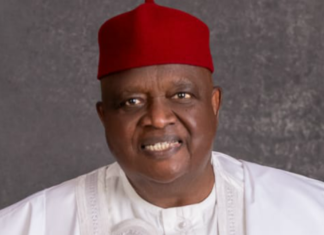By Valentine Amanze
On September 9, 2019, President Muhammadu Buhari of Nigeria ordered the evacuation of Nigerians from South Africa over the continued killing of Nigerians and other African nationals in South Africa.
Following the order, the first batch of 188 was immediately evacuated via a private sector initiative – Air Peace.
On Wednesday September 17, 2019, the Air Peace aircraft again returned another batch of 435 from South Africa.
The exercise, according to the airline’s boss, Mr. Allen Onyema, was free.
Onyema is not new in this type of venture. At the peak of the Niger Delta crisis, Onyema played a vital role to resolving the problem, which affected the country’s oil revenue.
Like Air Peace, other private sector operatives – Dangote Group and Capital Oil – have made sacrifices through the Corperate Social Responsibility initiatives; thereby forcing one to ask: Is the federal government of Nigeria doing enough for its citizens considering its
poor response to such emergencies? Perhaps, the president’s order for the evacuation was under-valued. He did not back it up with the necessary logistics until the intervention of the Air Peace. This reminds one that government is not getting its priority right; otherwise why would government officials and politicians say: Government has no business in business. This idealogy led to the privatization of government companies.
If the Federal Government-owned Nigerian Airways was operational, the mission to South Africa would have been easier than the frustration Air Peace suffered in that country.
There is the need to bring back the Nigerian Airways for emergency situations like the one in South Africa. Kenya Airlines and Ethiopian Airlines are profit-making ventures owned by the countries’ governments. The Nigerian government should borrow a leaf from Kenyan and Ethiopian governments – revive Nigerian Airways for the good of Nigerians; after all, the government is controlling the nation’s crude oil business.
Besides, the Xenophobic attack in South Africa was not suprising. The attacks were partly caused by the Nigerian leaders, who failed their subjects.
The Igbo say that whoever fetches ants-infested firewood indeed invited lizards to his home.
How would one explain the campaign of a Nigerian leader abroad in 2015 that his subjects were lazy and corrupt.
In fact, President Muhammadu Buhari allegedly compiled the list of some prominent Nigerians to be denied visa and handed it over to the U.S. and some European nations. Since then Nigerians are no longer respected abroad and treated as criminals.
Branding Nigerians, especially the youths, as criminals by their leaders, is the genesis of the current rubbish and insults Nigerians are suffering in South Africa and other countries.
Criminals are found all over the world including in Nigeria. At present, the U.S. is recording high crime rate yet its government officials are not branding citizens as criminals. The current federal government needs to do more on image laundering to reverse the trend.
Also the failure of the federal government to creating jobs and providing security has led to massive migration by Nigerians to other countries in search of greener pasture.
During the last general elections in Nigeria, politicians made promises they never kept; there is hardship and frustration in the country of about 180 million people, while very few are enjoying the nation’s wealth.
How would one explain the demand by the current Senate leadership to be given N5 billion to buy brand new SUVs for its members when no effort was made by it to fly back stranded Nigerians from South Africa. Its response to the Xenophobic attacks was below expectation. One expected the lawmakers to be enacting laws for the protection of Nigerians all over the world and not what they are doing presently.
No U.S. citizen will ever suffer humiliation in any foreign country.
Nigeria’s foreign policy has also come to question on the Xenophobic attacks. What is the focal point of Nigeria’s foreign policy today? The country is floating on the waters of poor leadership.
The government must create an enabling environment for business to strive. It is the hardship in the land that is forcing Nigerians to migrate to foreign countries where they are treated as slaves.
Many multi-national companies have fled Nigeria because of poor infrastructure, leaving behind an army of restive youths.
The Nigerian government must pay serious attention to the provision of essential services like good roods, water, education and electicity to drive the nation’s economy back to its past glory, while politicians must be sincere about the state’s economy.
The South Africa’s former Deputy Finance Minister, Mcebisi Jonas, said, “Our political and economic problems are chronic.
“Our problem is that as we decline, we under-deliver. As we under-deliver, we generate more social and political discontent.”
.08054103455
valoa2000@yahoo.com











